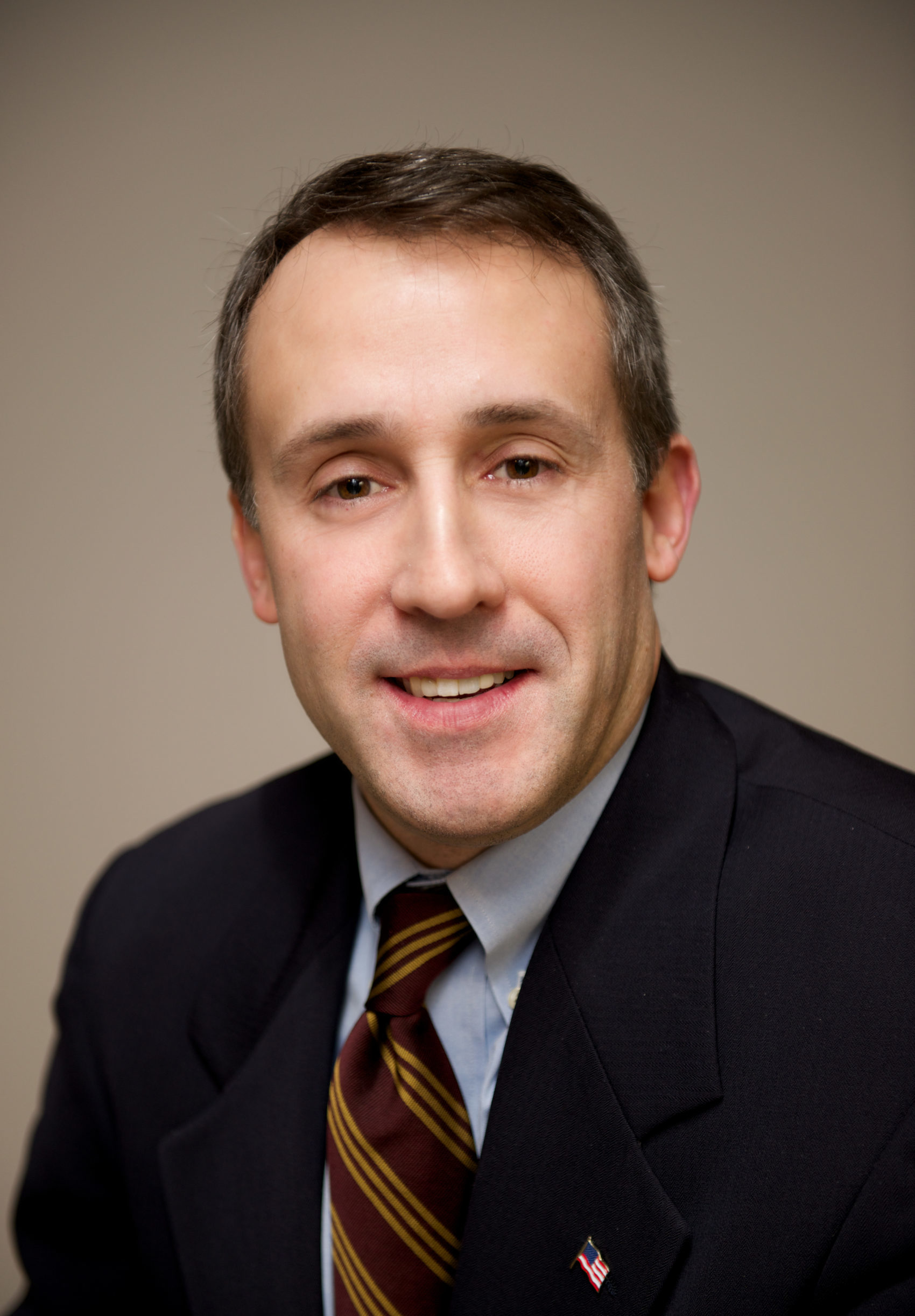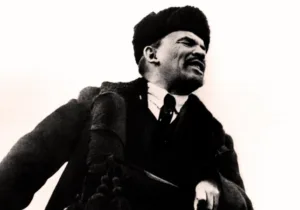It’s Christmastime 1955—among the tensest, coldest days of the Cold War. Barely two years removed from a bloody stalemate on the Korean Peninsula, the American people are on edge, and their military is on hair-trigger alert. A fragile armistice has taken hold along the 38th Parallel, but North Korea and South Korea are closer to war than to peace. In West Berlin, communist armies literally surround US troops. Moscow has just forged the Warsaw Pact to consolidate its hold over Eastern Europe—and sharpen its aim on Western Europe. In response to artillery attacks by the People’s Republic of China (PRC) against Taiwan, Congress has authorized the president to use force to defend the island. President Dwight Eisenhower openly declares that he’s prepared to use atomic weapons against the PRC “exactly as you would use a bullet.” At the newly minted Continental Air Defense Command in Colorado (known as CONAD, forerunner to NORAD), US personnel are scanning the skies above the Arctic for inbound Soviet bombers.
In the midst of all that tension and danger, a special phone line at CONAD rings. US Air Force Colonel Harry Shoup is the man charged with answering the phone and serving as America’s first line of defense. He braces for the worst. As one history of that Christmas recounts, “The caller might be the president or a four-star general warning of an atomic attack.”
Shoup picks up the phone and answers smartly. “Yes, sir, this is Colonel Shoup.” But there’s no one on the other end of the line. “Sir, this is Colonel Shoup,” he repeats. “Sir, can you read me alright?” the increasingly concerned officer asks.
Finally, a voice breaks the silence and tension, but it’s not what Shoup expects: “Are you really Santa Claus?”
Shoup thinks it’s a joke. Looking around the command center for the guilty party, he changes his tone from that of a ready-to-act subordinate to that of an unhappy commander. “Would you repeat that?” he growls.
But when he hears crying on the other end of the line, Shoup realizes this is not a prank. It’s a scared little kid calling Santa. Through no fault of her own, the child has dialed CONAD instead of the Santa Claus hotline featured in a Sears newspaper ad.
“They had one digit wrong, and it was my father’s top-secret phone number,” Shoup’s daughter, Terri Van Keuren, recently recounted.
So Shoup shifts his tone yet again—from that of an angry commanding officer to that of a caring dad, and ultimately to that of the jolly old elf himself. “Yes, this is Santa Claus,” the father of four cheers. “Have you been a good little girl?”
After finishing the call, Shoup directs AT&T to transfer CONAD’s once-secret phone number to Sears. “But in the meantime,” as Van Keuren recalled in a History Channel interview, “he had to have servicemen answer the calls.”
Shoup embraced his unexpected role. As one newspaper explains, Shoup called the local radio station to report on Santa’s movement across the Christmas Eve skies of North America: “This is Colonel Shoup, the commander of the Command Operation Center… We have an unidentified flying object. Why, it, it looks like a sleigh.”
Right and Wrong
Thus was born what’s surely the most enjoyable, least stressful mission at NORAD. After all, the men and women based at NORAD are on alert every hour of every day—even at Christmastime—for intentional attacks and accidental missile launches, for natural disasters and manmade chaos, for Doomsday and World War III. Yet when the calendar hits December 24, NORAD becomes a link between Santa and kids from around the world. Nowadays, according to local newspapers, some 1,500 volunteers (many of them civilians) field 150,000 calls on Christmas Eve. (According to Brian Earl’s Christmas Past podcast, Shoup’s children—now grown—serve in NORAD’s army of Santa hotline volunteers.) NORAD also processes thousands of emails and millions of visits to its Santa-tracking website, noradsanta.org.
All of this exists today—all these grownups taking time out of their lives, schedules, and missions to help kids soak in the wonder of Christmas—because a US Air Force colonel “did the nice thing,” as Van Keuren concludes. “He could have hung up, but he didn’t… He did the right thing and look what happened.”
For his efforts during Christmastime 1955, Shoup came to be known as “the Santa Colonel.” What’s most striking about the story that made him famous is his humanity, his willingness and readiness to do the right thing, and how living in a free society allowed him to express that humanity and encouraged him to do what’s right.
It’s hard to imagine a Soviet colonel—or today, a PRC colonel—responding the way Shoup responded. It’s not that Soviet—or today, PRC—military personnel lacked humanity or a desire to be nice. It’s that the communist system—bent on control and conformity—wouldn’t in 1955 and still won’t in 2021 tolerate such individuality and independence, such freedom of action and freedom of conscience.
For that matter, it’s hard to imagine a Soviet child asking a Soviet military man about Santa. It pays to recall that the Russian equivalent of Santa (Grandfather Frost) was banned soon after Lenin’s communist revolution, a step that was logical and inevitable inside the Soviet system. Lenin knew something that many of us in the West ignore or forget or gloss over: Santa Claus and Grandfather Frost are inextricably linked to Christmas, which is a religious celebration—and religion is an enemy of communism. As Karl Marx snarled, “Religion is the opium of the people.” Lenin himself viewed religion as “a powerful and ubiquitous enemy,” historian Paul Johnson adds.
Indeed, Lenin built a regime that made war against religion, elevated government above all else, and laid siege to the soul. By 1926, the Soviet state had murdered 1,200 bishops and priests; shuttered most seminaries; banned the publication of religious material; and closed down most parishes. “By 1939 only about 500 of over 50,000 churches remained open,” according to the Library of Congress.
Similarly, Xi Jinping’s PRC is a place where churches are smashed and followers of Christ are sent to reeducation camps; where Buddhist temples are bulldozed; where Muslims are packed into freight trains and forcibly sterilized and exiled to concentration camps; where bishops disappear and die in prison.
Communist regimes take these actions against faith and people of faith because the common denominator of most every religion is that there’s something above, something beyond, something bigger, more enduring and more important than the state. That notion represents a mortal threat to the legitimacy and durability of regimes claiming they have the authority and capacity to do everything, control everything, know everything, provide everything—regimes pretending to be God, regimes like the USSR and PRC.
Security Work
Some of the faithful lament how our modern celebration of Christmas mixes up the sacred and the secular, and that’s understandable. But it pays to recall that the secular stuff is a shadow of the sacred. Gift-giving reflects the gifts of the magi and God’s greatest gift to humanity. Figures like Santa Claus and Grandfather Frost (even though the latter likely had pagan roots) became stylized versions of Saint Nicholas, a righteous bishop who anonymously helped the poor. The time of year is an appropriation of a pagan Roman festival—a reminder that Christ is reclaiming a wayward world. In these Christmas shadows, we are invited to think about and wrestle with and believe in Immanuel—“God with us.” Because of Christmas, He is with us in two ways: He is “with us,” as in here and near to us. And He is “with us,” as in for us. At Advent and throughout the year, these twin notions of Immanuel offer hope to all people—hope in something bigger and better than the state, hope in something stronger than armies, hope in the One who’s making all things new.
In short, Christmas—even the commercialized, secular stuff such as Santa and his reindeer—remains connected to faith. “Christ,” after all, is right there at the beginning of the word. Christmas is a gathering to celebrate Christ: Christ’s mass. Those are two things Lenin’s regime, with atheism as one of its pillars, could not tolerate—and Xi’s regime still cannot tolerate.
So, it should come as no surprise that Grandfather Frost was “unmasked” by Lenin’s Communist Party “as an ally of the priest,” historian Karen Petrone explains in an interview with Time, or that Christmas was outlawed. Although Stalin allowed the return of Grandfather Frost, it wasn’t to celebrate Christmas. In fact, the main purpose was to boost Stalin’s popularity, according to Petrone, and push communist propaganda down the throats of Stalin’s subjects. As Time magazine detailed after sifting through old newspaper articles, “More than just the giver of gifts,” the Stalin-era Grandfather Frost “was the giver of pro-communist PR.” AP reported in 1949 how the communist version of Grandfather Frost would ask, “To whom do we owe all the good things in socialist society?” The children would obediently reply, “Stalin.”
As for Xi’s PRC, the Chinese Communist Party, echoing Marx, recently derided Christmas as “spiritual opium,” reasserted its ban on “engaging in Western religions,” and ominously directed party members (there are 95 million of them spread across every position of influence and authority) to “carry out good security work on Christmas Eve and Christmas Day.”
Shoup’s actions during Christmastime 1955 offer an un-planned, un-staged snapshot of a political system and world view strikingly different from that of Lenin, Stalin, and Xi—a system founded on the freedom to believe in God or Santa or not, to believe in the meaning of Christmas or not, to believe in Immanuel or not. That freedom of conscience and the companion notion that there is something beyond the reach of the state make all the difference.
This is not to suggest that Americans have done a good job preserving the core meaning of Christmas, or to say that America is the ideal exponent of Christmas virtues, or to conflate the kingdom of God with the kingdom of man. But it is to suggest that the measure of a nation, like that of an individual, is direction, not perfection; that America was born headed in the right direction; and that the USSR and PRC were not.
“Religion in America takes no direct part in the government of society, but it must be regarded as the first of their political institutions,” as Alexis de Tocqueville observed in the 1830s. “I do not know whether all Americans have a sincere faith in their religion—for who can search the human heart?—but I am certain that they hold it to be indispensable to the maintenance of republican institutions.”
Tocqueville, like the Founders, recognized that religion and religious liberty help support personal virtue, and personal virtue helps support civic virtue, and together these support institutions that promote a healthy society of free people. We don’t have to worship on the same days or in the same ways—or at all—to recognize this.
The converse—that a society cannot long survive without such religious undergirding—also seems to hold. It pays to recall that the atheist Soviet Union—one of history’s most brutal enemies of faith and conscience—staggered to its death and expired on Christmas Day 1991. Whatever you call that—a coincidence or poetic justice, cosmic irony or a Christmas miracle—it gives all mankind a reason for hope.
A shorter version of this appeared in the Landing Zone.






